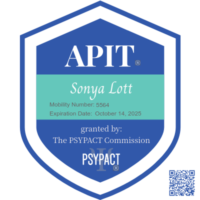Scope of Clinical Practice
My clinical practice is limited to working with individuals who are experiencing challenges due to death-related loss, including those diagnosed with PTSD, Major Depressive Disorder, or Prolonged Grief Disorder (PGD).
Grief is a normal yet complex and painful response to loss, especially following the death of a loved one. However, contrary to common beliefs, grief is not experienced in stages-linear or otherwise-and its expression goes beyond a simple range of emotions. It encompasses changes in thoughts, and can significantly impact physical, emotional, and spiritual well-being.
While grief is a natural reaction to the death of a loved one, there are numerous reasons why an individual may become "stuck" in their grieving process or may be derailed from adapting to life without their loved one and thus restoring a sense of well-being.
Prolonged Grief Disorder (PGD) is diagnosed when specific grief-related symptoms persist almost daily for at least 30 days, a year or more after the death of a loved one, and when these symptoms significantly interfere with daily functioning.
Unresolved grief can increase the risk of physical health conditions and co-occur with mental health issues like Major Depressive Disorder and PTSD. Therefore, it is important to work with a mental health professional who has specialized expertise in diagnosing and treating PGD, as well as addressing frequently co-occurring conditions such as major depression and PTSD.
Before reaching out to me, I recommend completing the Brief Grief Self-Assessment Quiz from the Center for Prolonged Grief to determine whether you may be experiencing Prolonged Grief Disorder.
